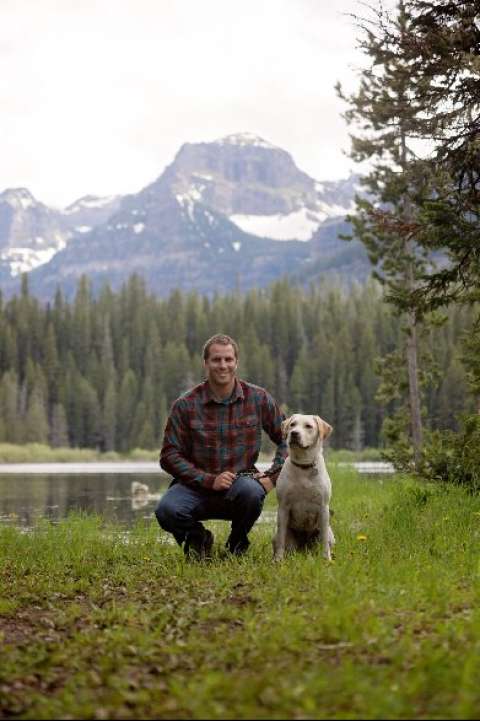I’m an ex-wildland firefighter, extreme whitewater kayaker, and love any outdoor adventure. I’ve fallen off cliffs, survived near-drownings, been woken up by grizzly bears and even spent thirteen hours overnight in a hot spring to survive a -35° F blizzard in northern Idaho. Through all my experiences in life so far, I have a wealth of personal adventures to draw from when creating my adventure fantasy novels. Growing up in Bozeman, Montana I developed a love for the outdoors. My father got me into rock climbing, all-mountain skiing, and whitewater kayaking at a young age. Spending most of my free time in the woods, mountains, and rivers of the Rocky Mountains, I was never deprived of seeing the potential for the fantastic in nature.
It was while reading JRR Tolkien’s The Hobbit that my parents first discovered I was dyslexic. Though I struggled to comprehend the written language, my love of otherworldly stories never faded. As an author, most people would never guess that I’m severely dyslexic. It's a widespread learning disability that can vary in severity depending on the case. Many people can go their whole lives without knowing they have it. For others, it can dramatically affect how well they perform in an academic or professional setting.
So how does dyslexia affect me as an author?
Dyslexia, for me, makes reading and writing (pretty much, basic comprehension) more difficult. I rarely spell anything correctly on the first go-around, I read at a much slower pace than most people, and I have to re-read things two or three times before I get the same level of comprehension as most people do their first pass (you can imagine how many mistakes my first drafts contain).
I've dealt with this mental barrier my whole life. My parents caught on to my dyslexia when I was relatively young. We had listened to The Hobbit book on tape driving cross country and I loved the story so much my parents bought me the paperback. They knew I struggled with reading, so they were excited when I fell in love with Tolkien’s world. After several weeks of me turning through the pages, they asked if I could read out loud to them. I confessed that I wasn’t actually reading the words on the page, but in truth forming my own version of the story in my head. After that came out, my parents sought to get me more specialized help. I struggled in school and was in and out of special education classes for years. It wasn’t until we discovered neurofeedback therapy that things for me started to click.
What’s neurofeedback therapy?
Dyslexia was explained to me that the pathways relaying information in my brain when reading or writing work at a much slower rate than the average person. It is difficult to associate a string of letters into words. Neurofeedback therapy works to speed up these associations and improve reading comprehension through a series of exercises that stimulate these synapses within the brain. Long story short, when I was sixteen, I went from the reading and writing level of an average ten-year-old to what an ordinary sixteen-year-old can comprehend in a matter of months.
Post neurofeedback, I’ve been able to manage my dyslexia and have advanced in my academic and professional career. The results of therapy have affected my ability to write more than anything. I still don't spell very well or read very fast, but my ability to write has continued to progress. Because I have a dyslexic brain, I can imagine things in great detail, develop unique perspectives, and think in pictures instead of words. These benefits combined with my overactive imagination and a unique set of skills/personal experiences allow me to bring to my stories to life. Sometimes dyslexia can be a hindrance for learning but when it’s used in the right way it can be a superpower. I use this superpower to create bold characters, detailed scenes, and fast-paced stories.


